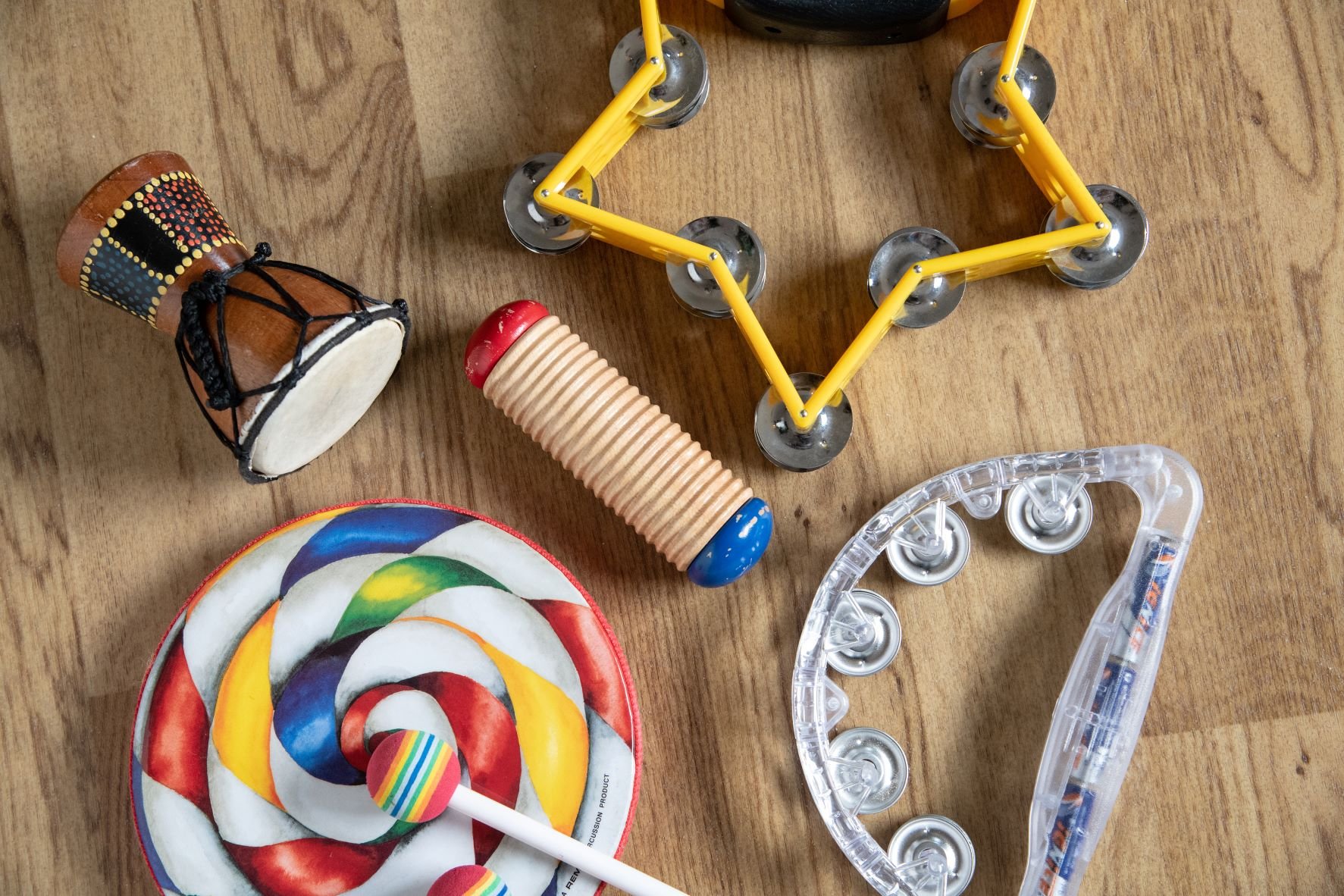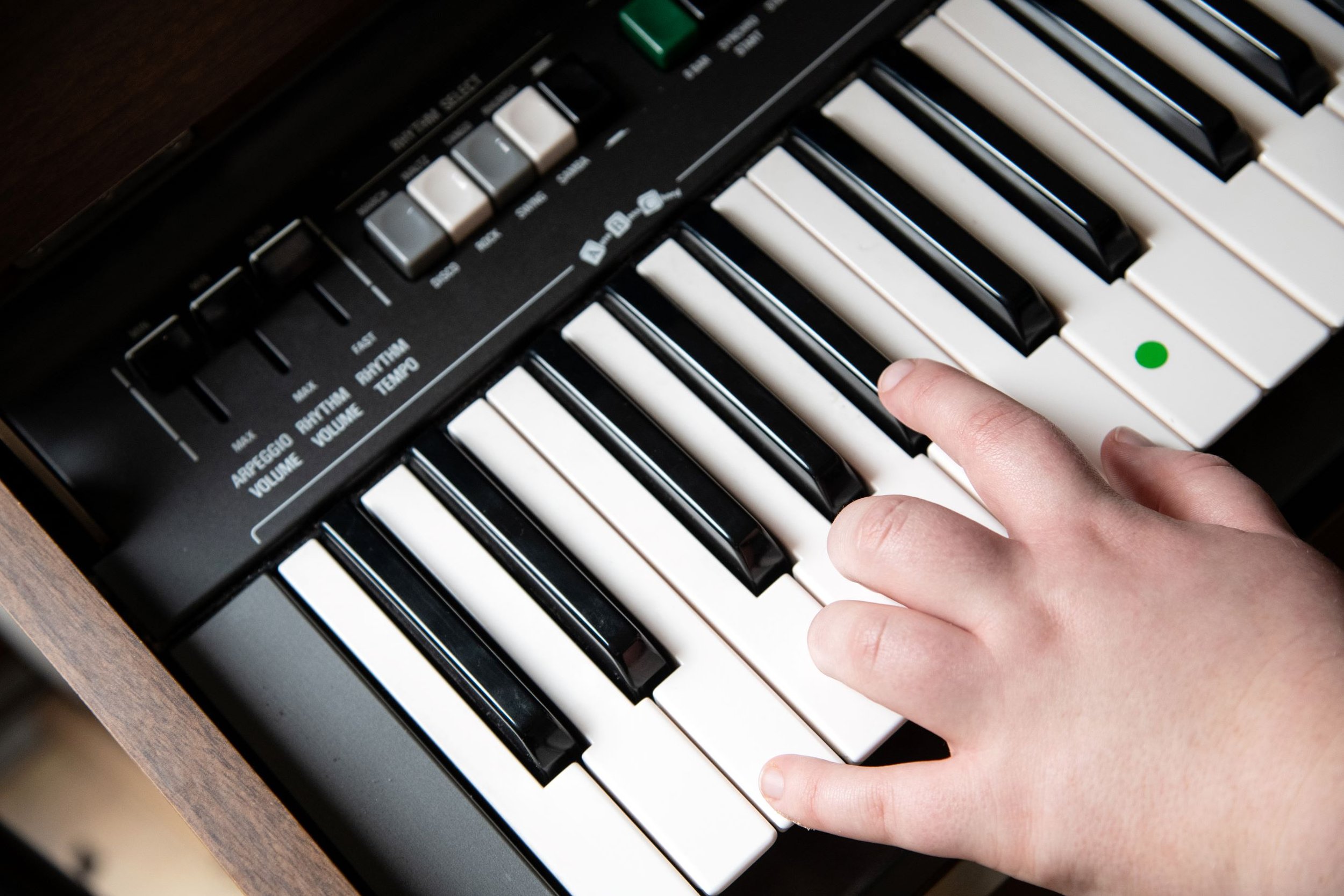5 of the best instruments to use to support music therapy
Music therapy is a big part of what we do here at Kids Inspire and is defined as the clinical use of music to accomplish individualised goals such as reducing stress, improving mood and self-expression. Music therapy experiences and practices may include listening, singing, playing instruments, or composing music. Below we have worked with our specialist music therapists to understand the 5 best instruments to used within therapy and the reasons why they are so beneficial for young people.
Within our music therapy sessions, a young person uses accessible percussion instruments alongside their own voice to express and and explore their feelings. The music therapist will support the young person’s responses through improvised discussions and sounds. We feature five of the most commonly used instruments within our sessions.
1. Piano
Considered by many to be the most important and influential tool within music therapy.
The main benefit is supporting fine motor movement skills using the keys, often accelerating clients to reach their aims and therapeutic goals. Exploring the keys together can hugely enhance a young person’s experience of themselves in music, showcasing their personality and creative side through notes.
2. Guitars
Guitars and ukuleles are commonly used within music therapy due to their ease of access. The main benefit is that they are relatively easy to use and play, and often has instant results. You may not think about tuning the strings, but this element and exercise can create confidence and improve concentration skills.
3. Tambourine
The tambourine is a personal favourite of this writer as it’s simple in design but can prove to be an essential part of any music therapy programme. Tambourines are easily portable and can be used on the go and have many play guises, such as movement, musical games and sharing. The main benefits of tambourines within music therapy include improving co-ordination, social skills and offering a young person an increased motivation to play.
4. Maracas
Maracas are known across the globe and can instantly produce a positive response. They can be a useful music tool for younger children with limited mobility.
Shakers or maracas can help to support fine motor skills and start to create social awareness. Due to their ease of use, maracas can create success-based musical activities where individuals instantly improve their self-esteem, connect with others and play with confidence in their therapeutic experience.
5. Drums
In music therapy, a therapist and child can engage in drumming conversations where they take turns playing rhythmic patterns. This turn-taking activity encourages the child to listen attentively, wait for their turn, and respond. It helps develop patience, impulse control, and the ability to engage in conversation. Playing drums can also allow children to release pent-up feelings, channel their energy, and explore different feelings. This can be particularly valuable for children who may have difficulty verbalising their emotions or who struggle with emotional regulation.
Further Reading:



